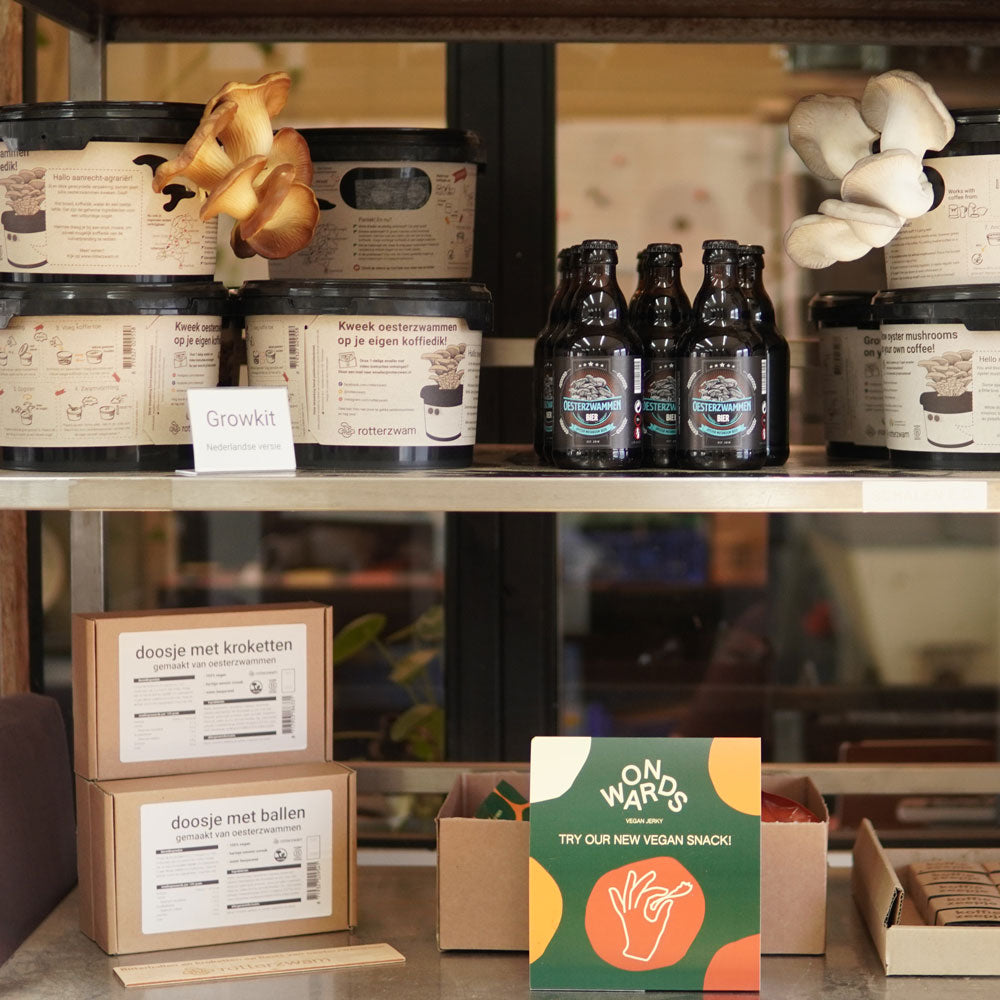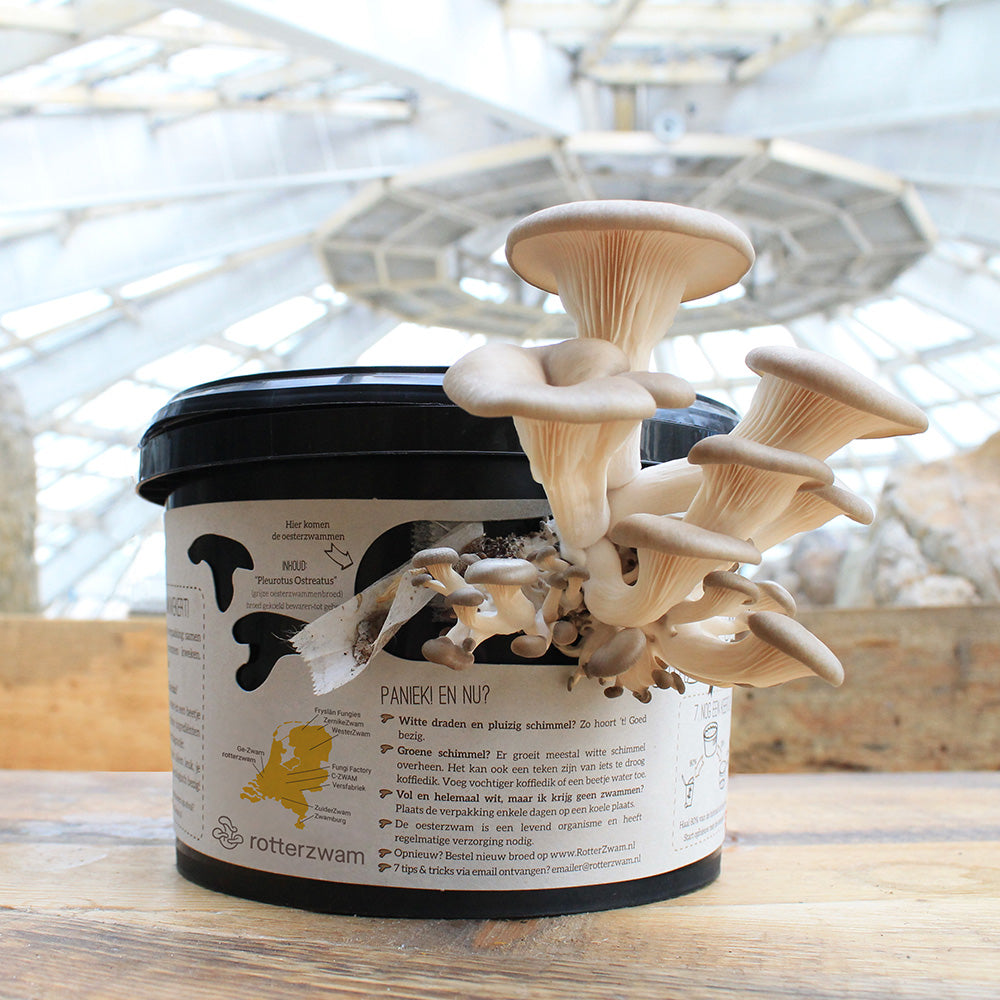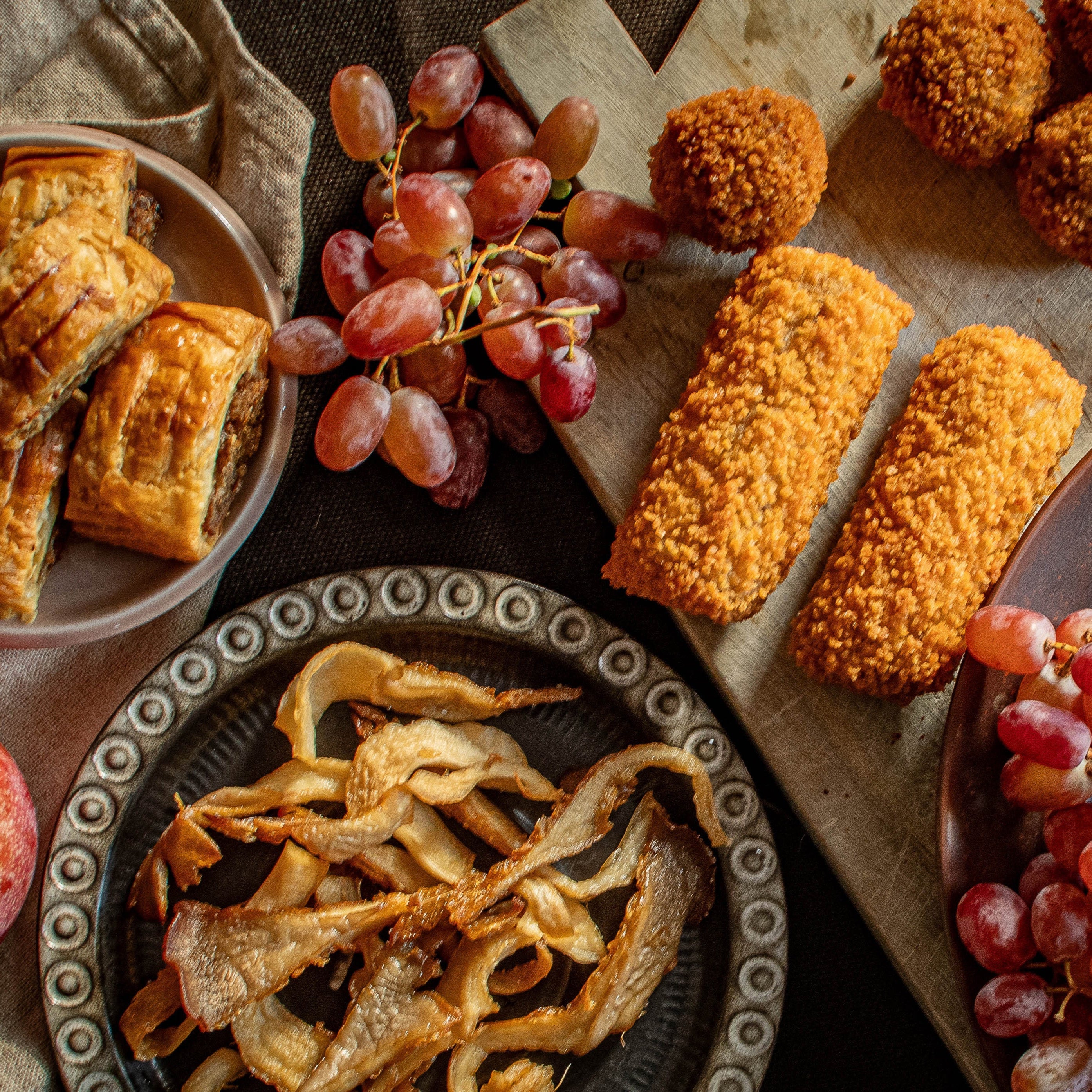The history of rotterzwam
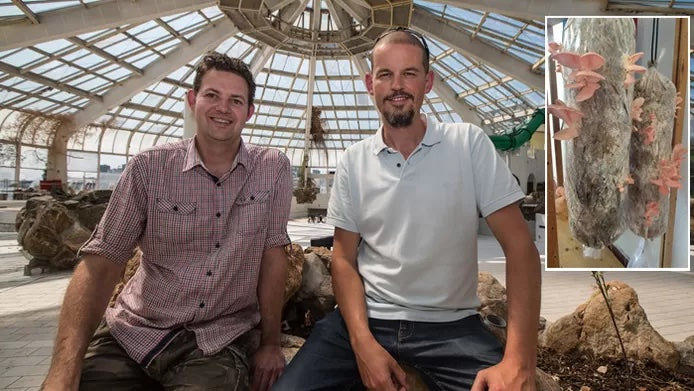
The start of rotterzwam & profit ASN Waste Battle
In early 2013, Siemen Cox launched the initiative in the basement of Tropicana, growing mushrooms with Max de Korte. A few months later, Mark Slegers joined the duo. Max decided to continue outside, and Siemen and Mark committed themselves fully to saving coffee grounds from incineration. They began their quest to implement the business case from the Blue Economy . The basement of the abandoned tropical swimming pool seemed the ideal environment for this process. The coffee grounds were collected by cargo bike and processed into substrate. It took several months to successfully convert this into oyster mushrooms. With the help of many visitors, we gained more and more knowledge. After the police raid, we suddenly became " world news."
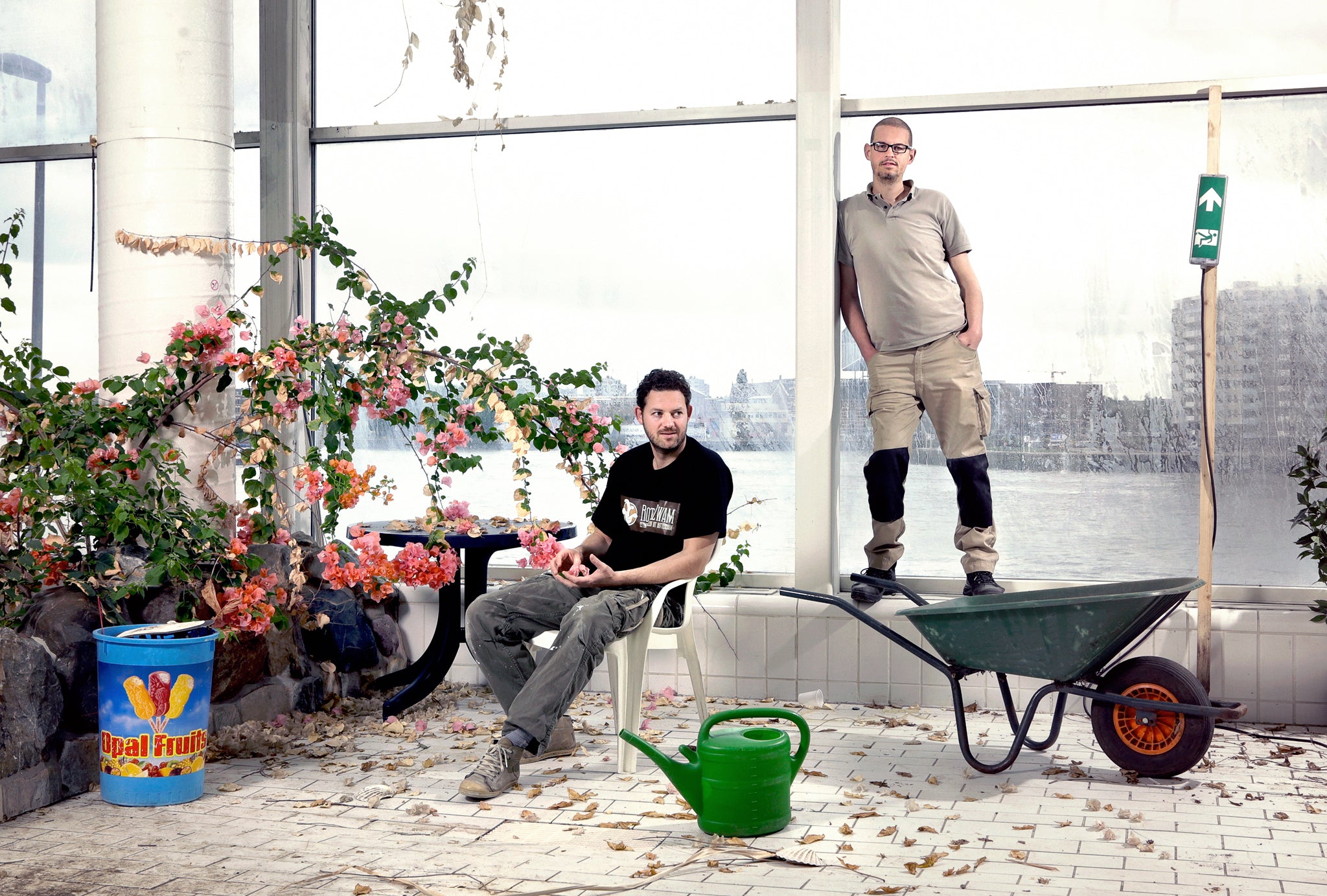
rotterzwam wins Urban Agriculture Award & voted radical innovator
Back then, there were still prizes to be won, and this way we raised some extra money for investments in our "nursery." By giving tours, workshops, and selling the first mushrooms, our sales started to take shape. With the help of the municipality of Rotterdam, which was happy to give us a platform in front of the international press, we attracted a lot of media attention. Fortunately, this attention shifted from the building to the rotterzwam mission. And it became clear to us that there was a lot of interest in our mission! That gave us a lot of extra energy. We were also approached by JDE to collect coffee grounds from its clients in the Rotterdam region. This confirmed to us that the business community could also use our help. Mark also pitched the BlueCity concept.
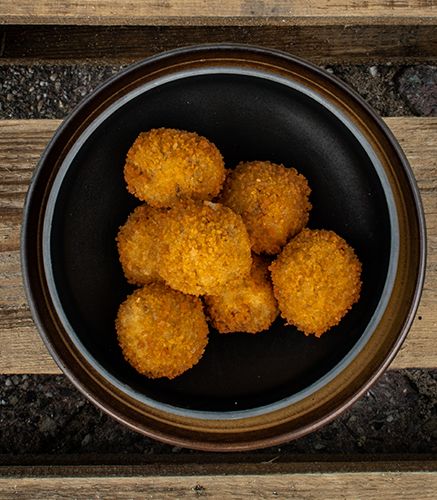
The first vegetarian bitterbal, Cleantech Rotterdam final & start BlueCity
One of our first mushroom buyers was the most surprising of all: a pastry chef! What can a pastry chef do with oyster mushrooms? We were lucky enough to find out. He makes hand-rolled bitterballen (bitterballen) from them! A resounding success! This collaboration has since resulted in several delicious snacks, and the snacks are no longer made by hand; they are now vegan! We're pitching our concept in the finals of Cleantech Rotterdam. The first BlueCity team is also being formed, with Mark and Siemen taking on the role of Blue Economy Officers.
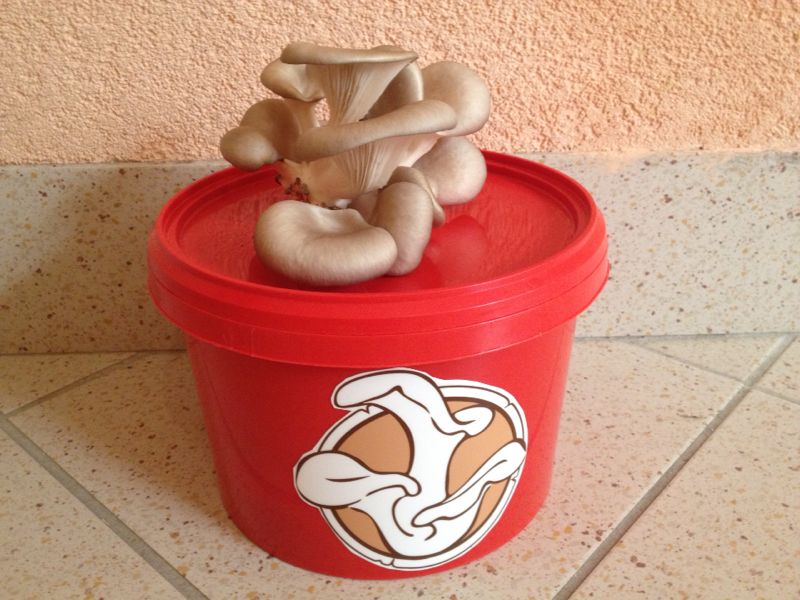
The 1st Countertop Farmer & Marketing Award Rotterdam & BlueCity
After receiving increasing media attention, more and more people came to us to drop off their coffee grounds. From two Sensoe pads to a bagful of moldy coffee grounds. After some research, we discovered that more than 70% of coffee grounds are generated at home. This set us on a quest to find a solution, as collecting coffee grounds from every household didn't seem like a sustainable solution. With some leftover buckets from Lebkov that had contained Bollies' ham sauce and a visit to our colleagues in Belgrade ( EkoFungi ), we developed the rotterzwam grow kit .
We were awarded the Marketing Award by the municipality of Rotterdam for promoting the city at home and abroad.
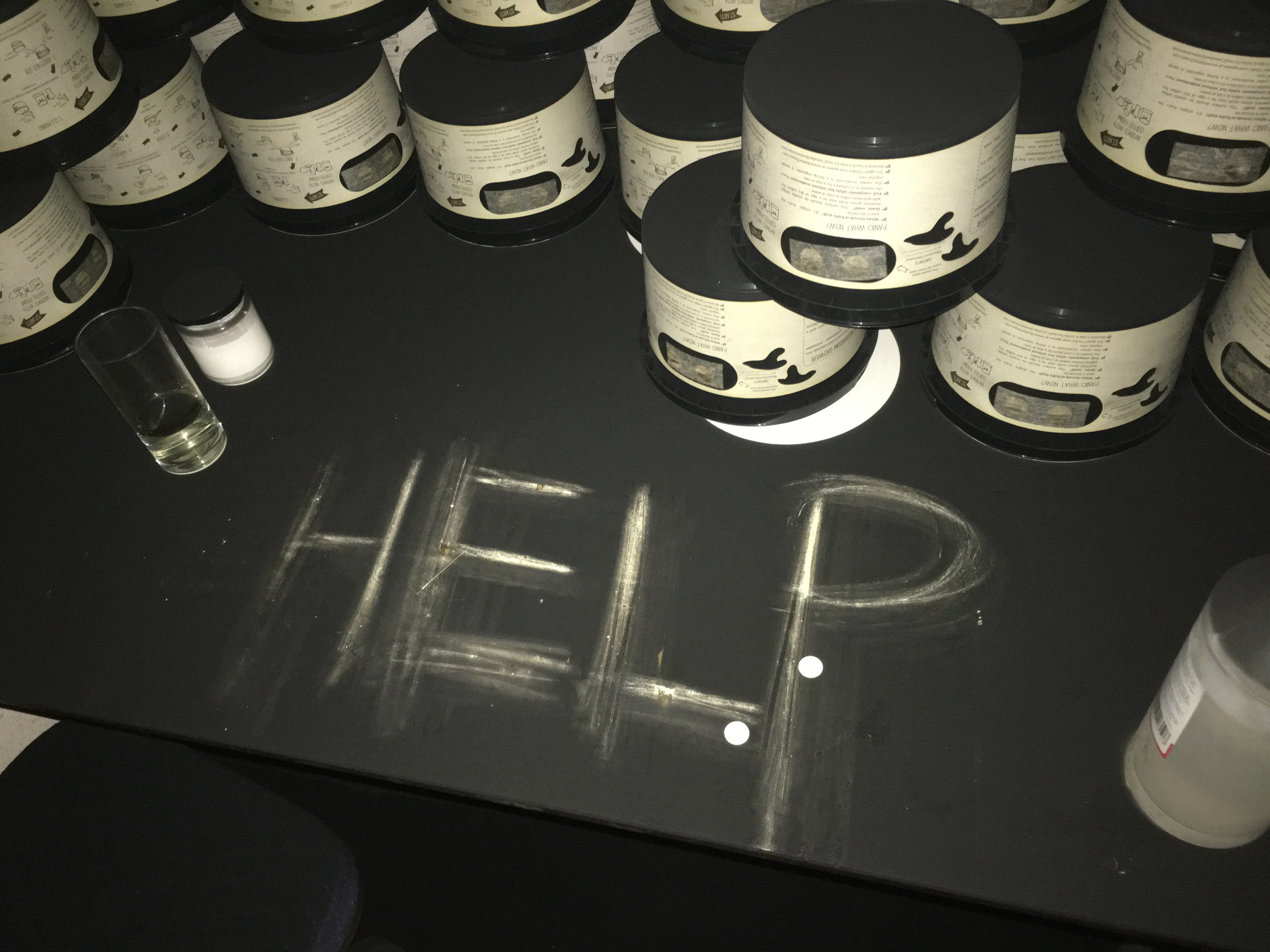
The fire in BlueCity
In May 2017, a fire broke out at one of Rotterzwam's neighbors. This fire left a thick layer of soot throughout Rotterzwam's entire facility. Other businesses also suffered significant damage. For Rotterzwam, this meant permanently closing the cultivation facility in BlueCity and preparing for a scale-up elsewhere in the city. For the first time, we were developing a plan to set up a nursery in used shipping containers. This, of course, required funding, so we decided to sell some of our shares through crowdfunding.
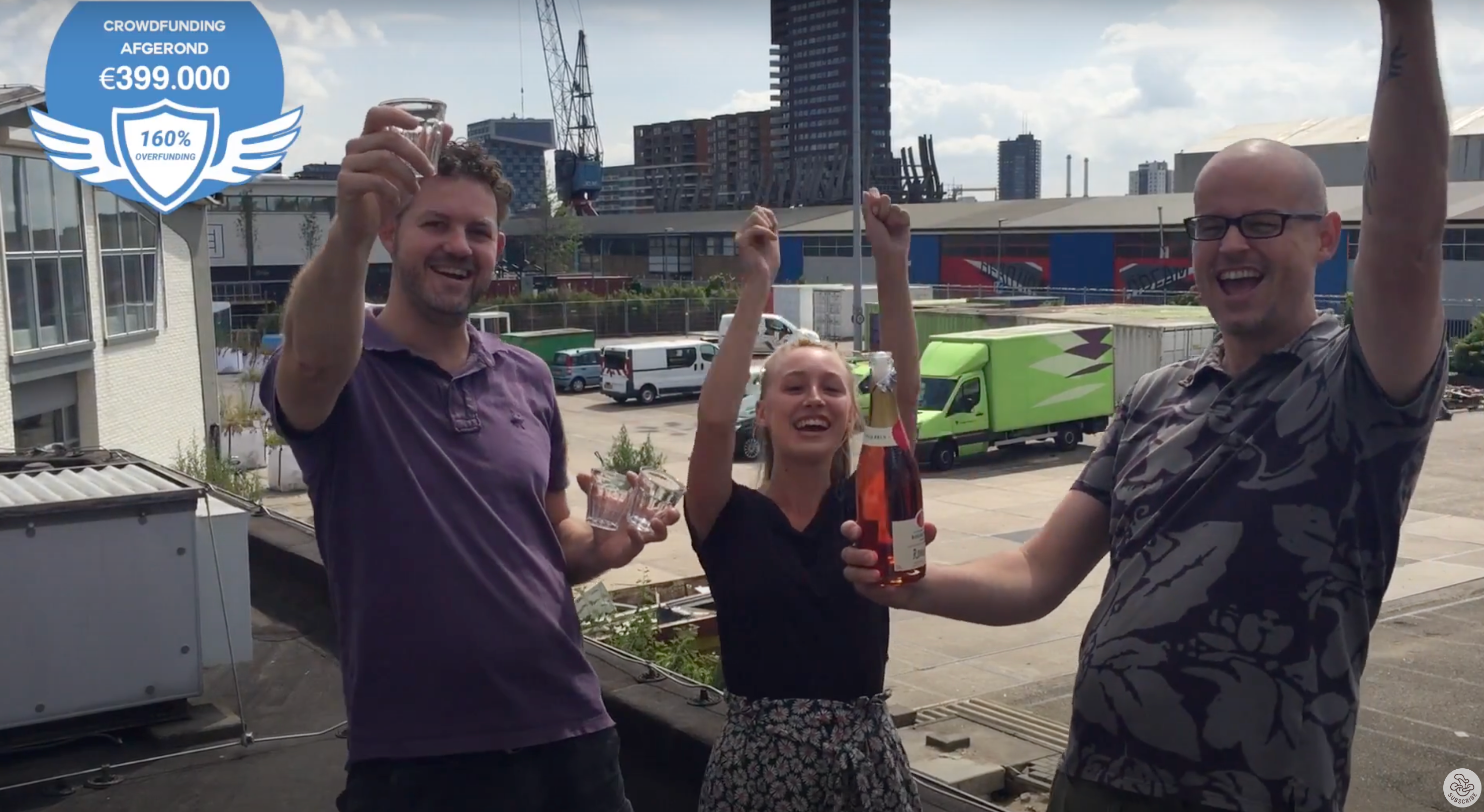
Crowdfunding a great success
Thanks to crowdfunding, rotterzwam has raised 160% of its investment target. This investment will allow rotterzwam to establish a nursery with eight climate-controlled containers, a substrate preparation area, a cold and freezer storage facility, and equip the entire nursery with solar panels. After a long search, we finally found a friendly business partner in the Kroon parking lot, where we can begin construction.
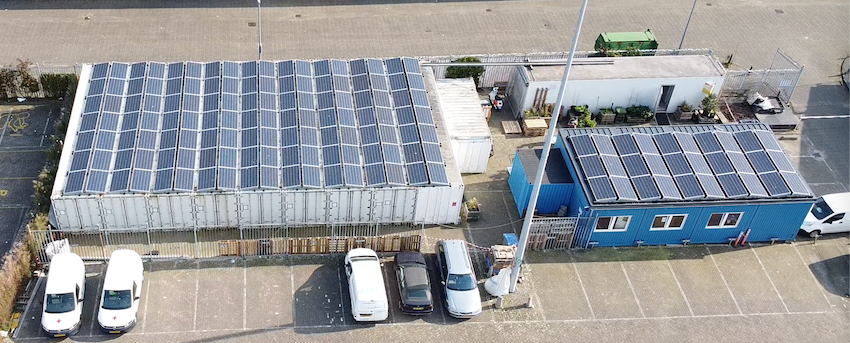
The new nursery & back to the soil
In May 2019, the Rotterdam Alderman for Sustainability opened the new rotterzwam farm. The farm consists of eight climate-controlled cultivation units that can accommodate a total of 12,000 kg of substrate. This means that at this location, we can save almost 80,000 kg of coffee grounds from incineration annually and produce 13,000 kg of mushrooms annually.
Now that the nursery is up and running, Rotterzwam can start completing the team and really get the scaling up underway.
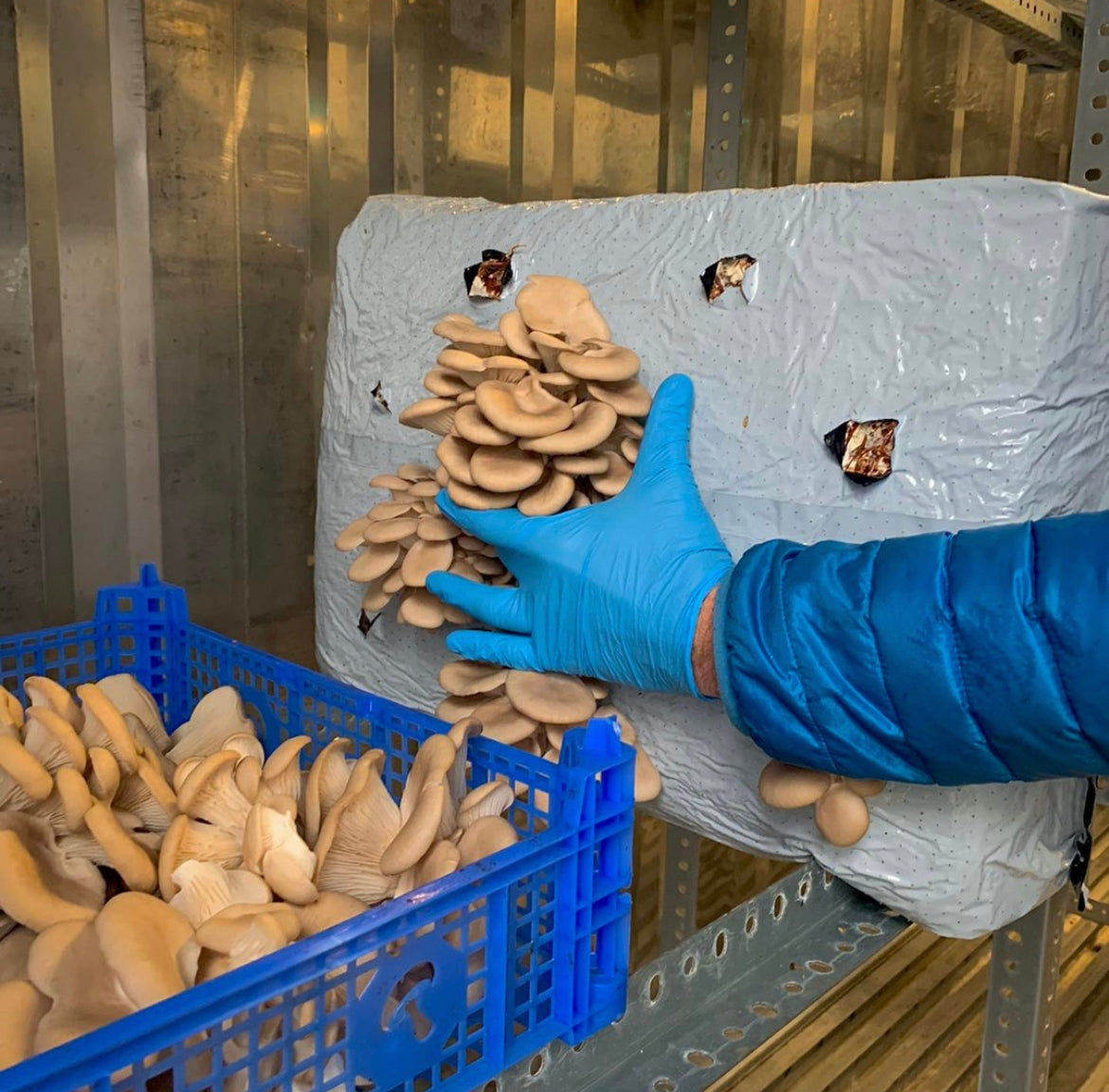
Corona
Unfortunately, a pandemic hits the world, and that means a major setback for rotterzwam. Just when the team is ready to scale up, coffee grounds suddenly become unavailable : the Netherlands is working from home. Fortunately, this also means we're selling well with the grow kit, and we can now rely on straw packages from the traditional sector for mushroom production. We're also noticing that fresh mushrooms purchased directly from us are becoming increasingly popular. To reduce costs, Mark and Siemen decide to reduce their hours slightly, so rotterzwam can continue operating reasonably well without too many financial problems.
Rotterzwam certifies itself for B-Corps.
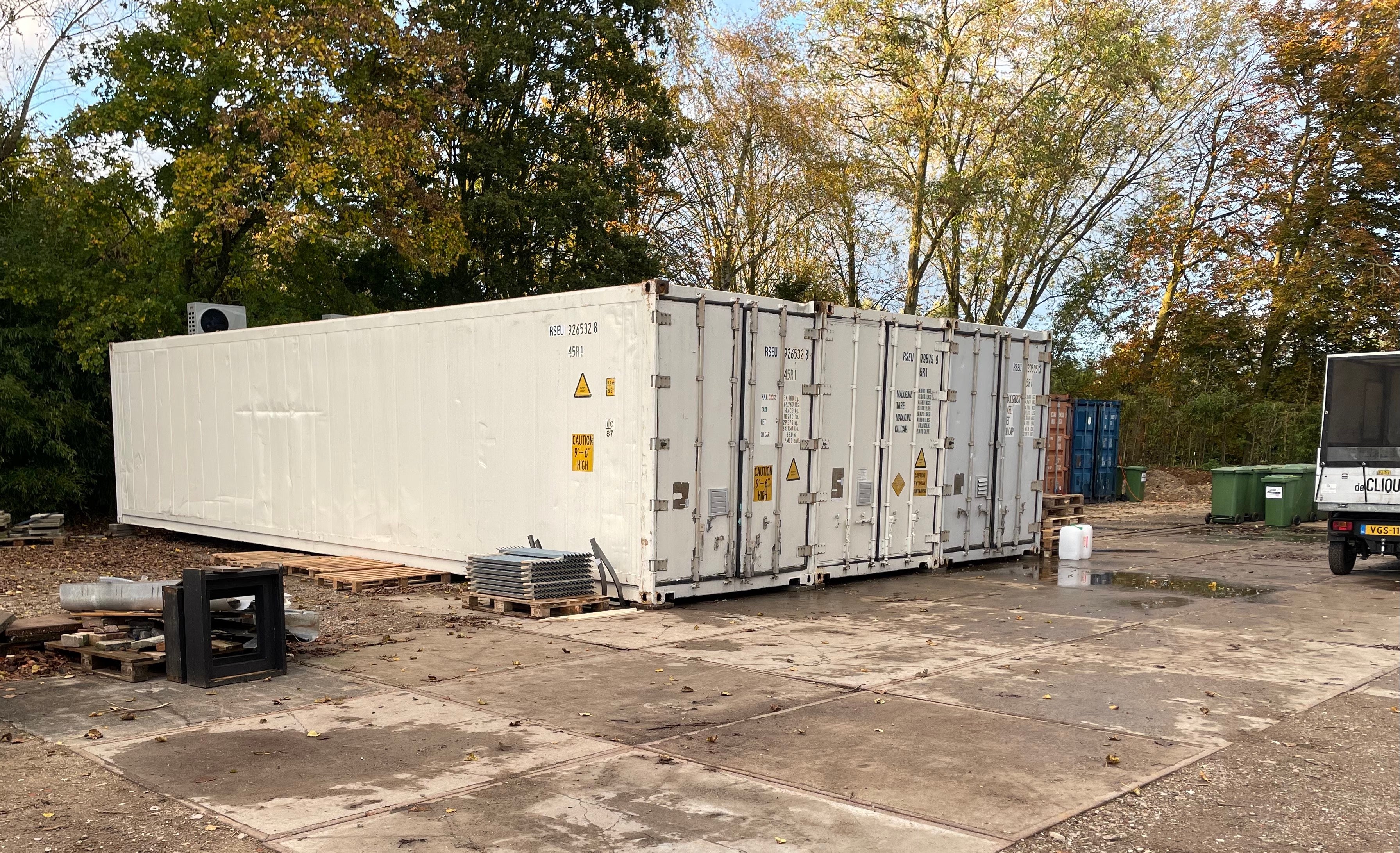
Survival, breeding units at the clique
We've been operating in a kind of survival mode for a year since the coronavirus pandemic. We've noticed that the lockdown has made it impossible to acquire more new partners to sell our products. We collect very limited coffee grounds and grow our products year-round on straw blocks.
Rotterzwam supplies 3 growing units to the Clique .
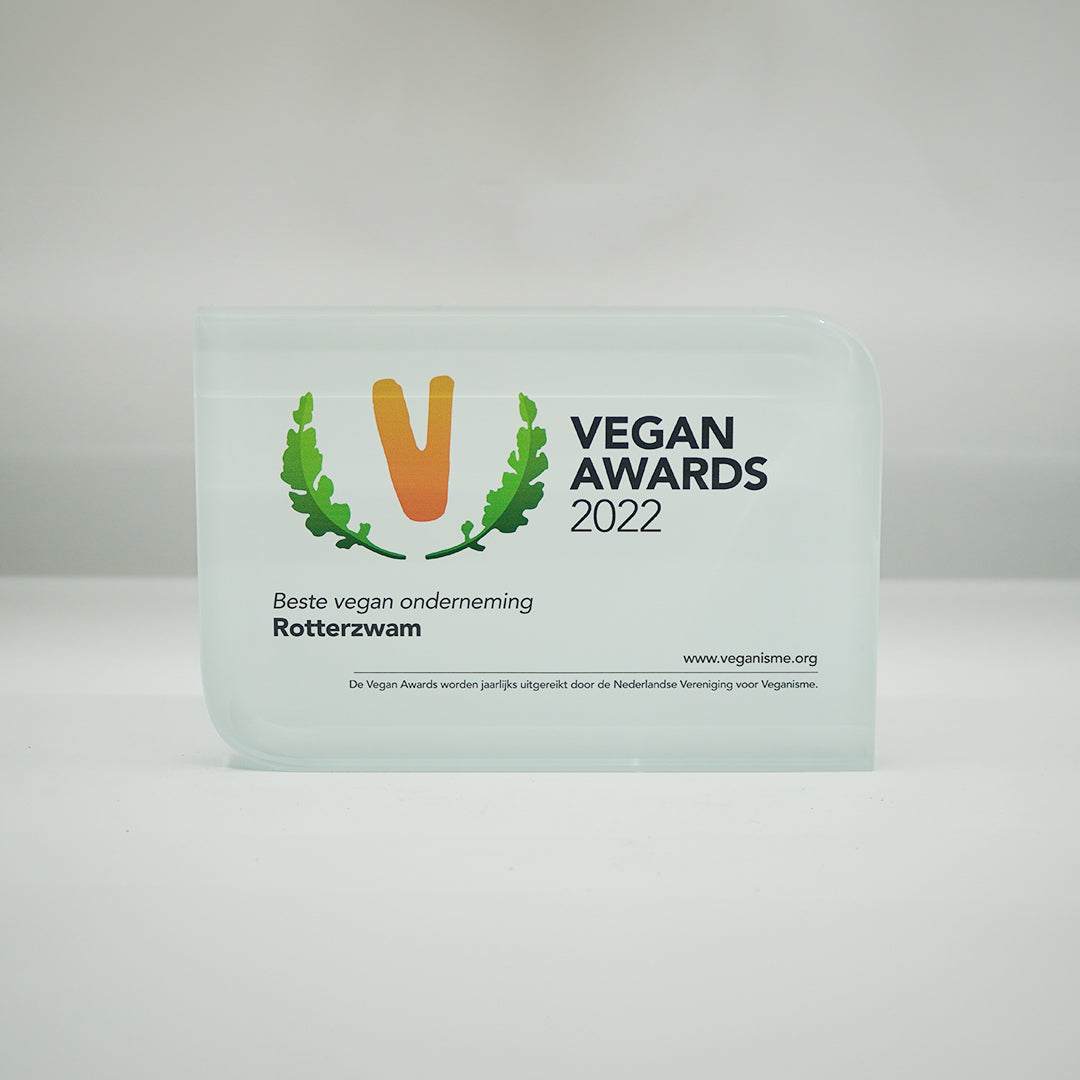
Back to coffee grounds, Vega award, Siemen leaves rotterzwam
The coronavirus pandemic has drained the team's energy and changed society and the world. Doing business in the new economy requires a great deal of energy in many ways because you're essentially constantly working against the flow, and the system holds you back in many ways. These nine years have also had an impact on Siemen, and he was ready for a break. This break ultimately led to his departure from Rotterzwam to embark on a new adventure with renewed energy.
For Mark, this presents a new challenge: steering Rotterzwam out of the coronavirus crisis without a business partner. Fortunately, things are looking up again, and new team members are finding their place within Rotterzwam.
Rotterzwam wins the Vegan Award 2022 - Organization category.
Rotterzwam has been ranked in the world's top 5 in the B-Corp Environment category.
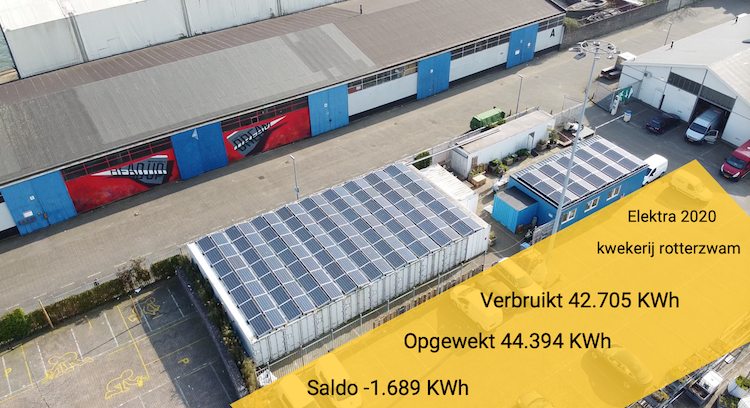
10 years of rot fungus & scaling up
2023 is a year of reflection! We've been around for 10 years. We've inspired many people, many new initiatives have emerged, and this year we'll also welcome our 100,000th countertop farmer. We're also increasingly active in several countries. We've further developed our own business model, and there's still plenty of room to improve it and align it with current societal challenges. The challenges remain: the energy and nitrogen crises will continue to develop into a raw materials and food crisis.
Collaboration remains key in the new circular economy and you will see more of this in the coming years.
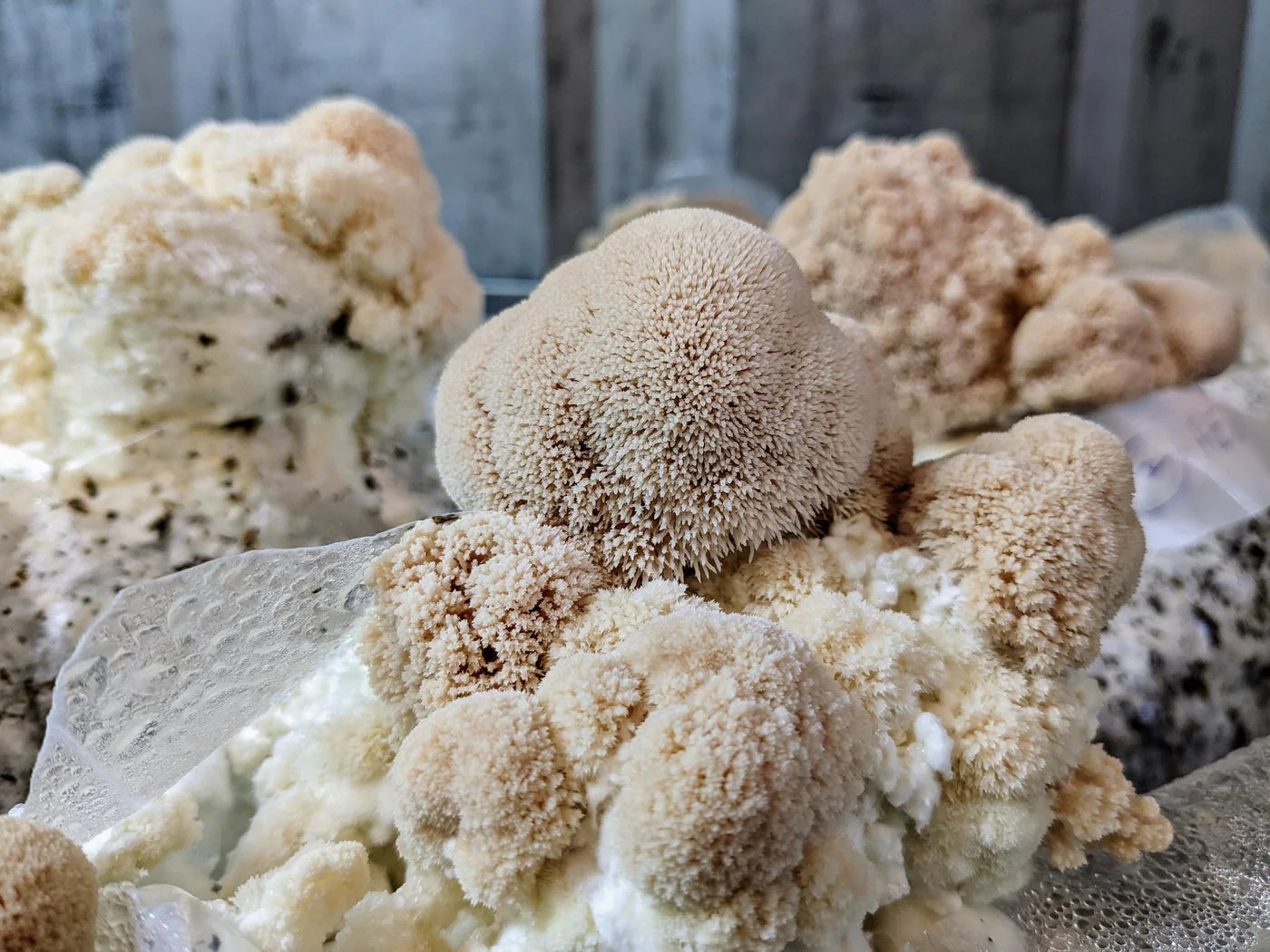
Opportunities for West
Sterilizing coffee grounds (Proof of Concept)
We successfully completed a "Opportunities for West" program, which demonstrated that we can sterilize coffee grounds and grow five mushroom species on them. We are developing this result into a substrate factory to implement this method on a larger scale.
We are entering into a partnership with SPORO.
SPORO will set up and scale up substrate production under a license from rotterzwam.
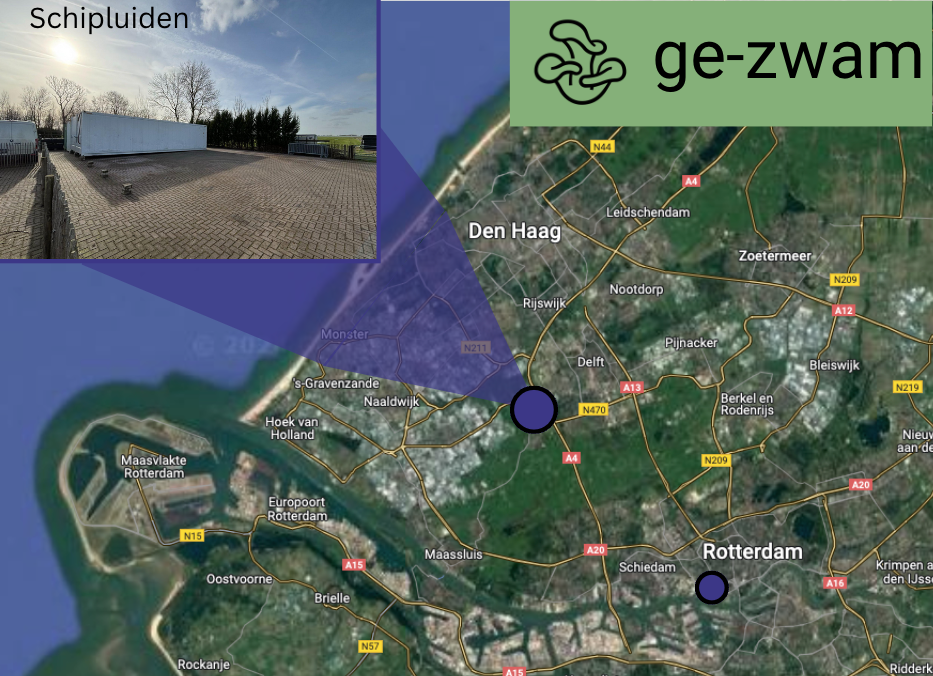
Scaling up
chatter in The Hague, SPORO is starting
With ge-zwam, we will supply the Haaglanden region with fresh mushrooms grown using local urban waste streams. We plan to start with four growing units in Schipluiden and will operate using the rotterzwam method: in mobile growing units. Together with rotterzwam, we will convert some of the mushrooms into snacks (bitterballen, croquettes, and sausage rolls). In 2025, we will launch a crowdfunding campaign to raise the necessary funds for this farm.
For substrate production we collaborate with SPORO.

